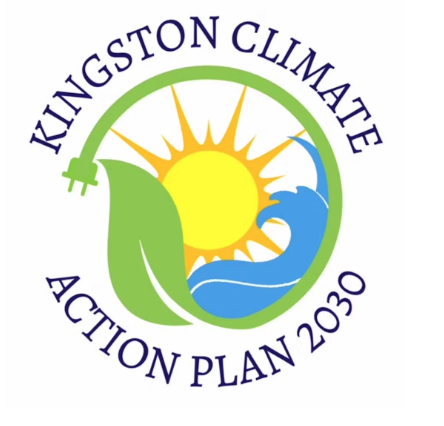Kingston launches organics program
Kingston’s Mayor Steven T. Noble has announced that this summer the city will launch Phase 1 of the Kingston Organics Program, a food waste diversion program. Noble’s announcement coincides with the release of The Kingston Organics Diversion Plan study that looked at ways to put organic waste to good use and keep it out of landfills.
According to the study, for Kingston residents and small commercial businesses in 2022, 8.76 tons, or 17,512 pounds of food waste were transported by truck with other Ulster County waste to the Seneca Meadows Landfill in Waterloo, New York, a 480-mile, 7.5 hour round trip.
 The study said that a report by the New York State Department of Environmental Conservation concluded that organics make up 30% of waste generated statewide. The study determined that implementing a curbside organics diversion program in Kingston represents a significant opportunity to divert a large portion of the solid waste collected annually.
The study said that a report by the New York State Department of Environmental Conservation concluded that organics make up 30% of waste generated statewide. The study determined that implementing a curbside organics diversion program in Kingston represents a significant opportunity to divert a large portion of the solid waste collected annually.
Kingston Organics Phase 1 will launch in July with eleven Community Food Scrap Drop-off locations throughout the city. City residents and businesses need to register and choose a drop-off location. Then they’ll be able to bring food scraps to the location using their own containers.
Noble said that the city’s Organics Diversion Plan and Organics Program demonstrate a commitment to improving environmental and sustainability efforts and the overall health and quality of life in the community.
“Composting programs have proven to reduce waste, decrease the impact of transportation for disposal, resulting in a meaningful reduction of greenhouse gas emissions,” Noble said. “This forward-thinking plan puts Kingston at the forefront of innovative efforts that save municipalities money while helping our environment. When the financial benefits from a program exceed the implementation and operating costs, it is a total win.”
The city said that organics diversion programs can have many benefits, including prevention of methane emissions from landfills and the creation of useful compost, which some people refer to as “black gold.” The compost returns nutrients to the soil while increasing porosity.
Food scraps will be gathered by the city at the drop-off locations and transported to a local composting facility.
Bins and totes for accumulating organics will not be provided by Kingston, nor is the program mandatory. Once the program is launched, the city will evaluate it over several months and develop the future phases based on response. Future phases could include commercial collection or curbside residential collection with small food scraps containers.